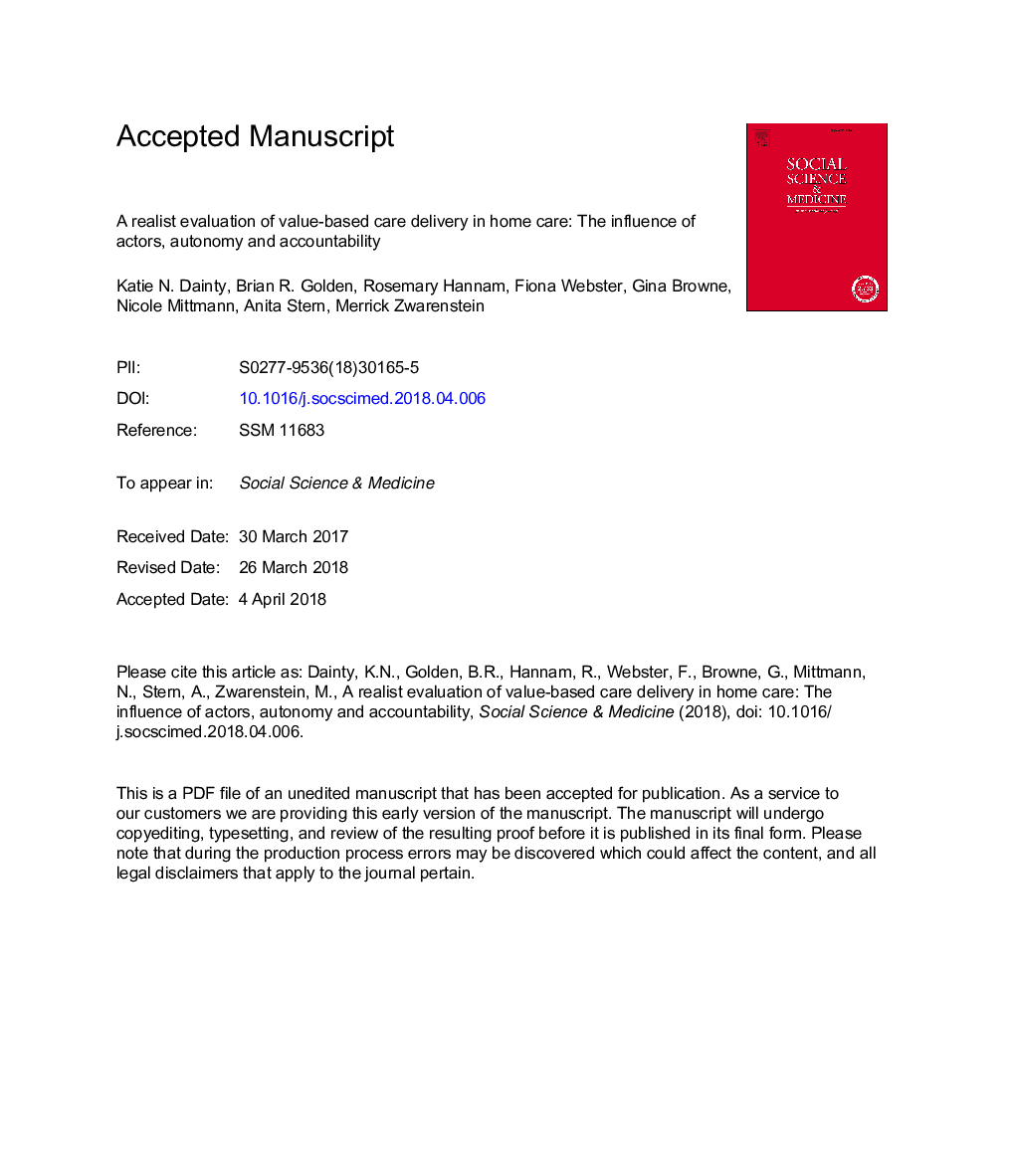| Article ID | Journal | Published Year | Pages | File Type |
|---|---|---|---|---|
| 7327928 | Social Science & Medicine | 2018 | 38 Pages |
Abstract
The increasing demand for home care is occurring in tandem with the need for governments to contain health care costs, maximize appropriate resource utilization and respond to patient preferences for where they receive care. We describe the evaluation of the Integrated Client Care Project (ICCP), a government funded project designed to improve value for outcomes for patients referred to community wound care services in Ontario, Canada. We applied a realist evaluation methodology in order to unpack the influences of contextual and mechanistic choices on the intended outcomes of the ICCP implementation. We collected data through ethnographic methods including 36 months of field observation, 46 key informant interviews and contemporaneous document analysis. The findings presented here highlight how theoretical mechanisms were negatively impacted by strong contextual patterns and weak implementation which led to underwhelming outcomes. Autonomy of the participant organizations, lack of power within the implementation team to drive change, opacity of the goals of the program, and disregard for the impact of complex historical relations within the home care sector compounded to undermine the intended outcome.
Keywords
Related Topics
Health Sciences
Medicine and Dentistry
Public Health and Health Policy
Authors
Katie N. Dainty, Brian R. Golden, Rosemary Hannam, Fiona Webster, Gina Browne, Nicole Mittmann, Anita Stern, Merrick Zwarenstein,
